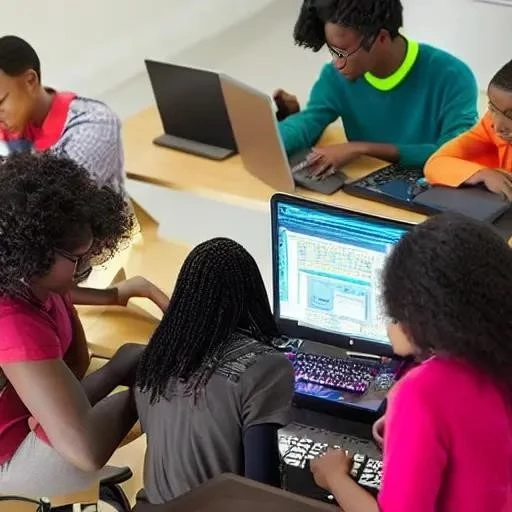
In an increasingly digital world, the ability to code is rapidly transforming from a niche skill into an absolutely essential literacy. It’s no longer sufficient to simply use technology; understanding how it works, and being able to build and adapt it, will be the defining characteristic of success in the coming decades. Imagine a future where coding isn’t just for software engineers, but a fundamental skill taught alongside reading, writing, and arithmetic. This isn’t just a technological shift; it’s a societal evolution, reshaping how we interact with the world around us and empowering individuals to become creators rather than merely consumers.
Think of coding as the new language of innovation. It’s the key to unlocking countless opportunities, from designing groundbreaking solutions to pressing global challenges to building the next generation of immersive gaming experiences. By learning to code, individuals gain the power to not only understand the intricate workings of our increasingly automated world but also to actively shape its future. This extends far beyond just technical prowess; it fosters critical thinking, problem-solving skills, and a deep understanding of computational logic – skills that are incredibly valuable across all industries and aspects of life.
| Category | Information |
|---|---|
| General Concept | The Importance of Coding as a Foundational Skill |
| Key Benefits | Enhanced Problem-Solving, Creativity, Future-Proofing Career, Digital Literacy |
| Learning Resources | Online Courses (Codecademy, Grasshopper), Coding Camps, Educational Games (CodeMonkey, Scratch) |
| Future Trends | Gamified Learning, VR/AR Integration, AI-Assisted Coding |
| Relevance | Essential for navigating and shaping the future AI-driven world. |
| Website | Code.org |
The beauty of coding lies in its accessibility. Gone are the days when it was an esoteric art reserved for a select few. Platforms like Codecademy and Grasshopper have revolutionized the learning process, offering engaging and interactive courses that make coding accessible to anyone, regardless of their background or prior experience. We are seeing a paradigm shift, with virtual reality and augmented reality poised to create even more immersive and gamified learning experiences. Imagine learning to code by building a virtual world, solving puzzles within a simulated environment, or collaborating with other learners in a shared digital space. This will undoubtedly make learning remarkably effective and, most importantly, fun.
Consider the profound impact of AI on coding itself. AI-powered tools are now capable of assisting developers in writing code, identifying bugs, and even generating entire programs from natural language descriptions. This doesn’t mean that human coders will become obsolete; rather, it signifies a shift towards a more collaborative and efficient workflow. By integrating AI-driven insights, developers can focus on higher-level tasks such as designing innovative solutions and architecting complex systems, leaving the more mundane and repetitive tasks to the machines. This symbiotic relationship between humans and AI will undoubtedly accelerate the pace of technological innovation and create even more opportunities for skilled coders.
The time to embrace coding is now. As technology continues to evolve at an exponential pace, the demand for skilled coders will only continue to grow. Whether you’re a student, a professional looking to upskill, or simply someone curious about the digital world, learning to code is an investment in your future. It’s a journey of discovery, empowerment, and endless possibilities. So, dive in, explore the world of algorithms and syntax, and unlock the superpower that will shape the future – because learning to code isn’t just a skill; it’s an adventure.
Date Published: 10/01/2025
